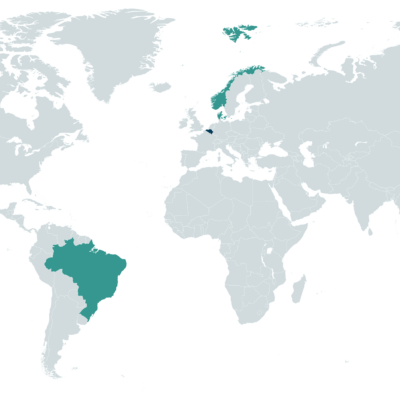FITNESS – Financing Transformative Nature-Based Solutions for equitable and just Sustainability Solutions
Call
Duration
01/02/2025 – 31/01/2028
Total grant
Approx. 850 thsd. €.
More information
Gert Van Hecken
gert.vanhecken@uantwerpen.be
Partners of the project
- Institute of Development Policy (IOB), University of Antwerp, Belgium
- Department of Biology, Aarhus University, Denmark
- Centre for Advanced Amazonian Studies, Universidade Federal do Pará, Brazil
- Climate and Natural Resources Unit, Chr. Michelsen Institute, Norway

Context
climate protection and extreme-weather resilience, generating livelihood opportunities, and reducing inequality, it is imperative that alternatives are built on an inter-relational understanding of social inequality and ecological degradation. To this end, NbS have emerged as important action-oriented interventions to improve human wellbeing through careful stewardship of nature in rural and urban contexts. However, NbS, in its current format, prioritizes economic valuation of nature through financial mechanisms such as Payment for Ecosystem Services (PES), while overlooking the structural and historical roots of ecological crises. This has resulted in unsustainable and ineffective NbS interventions and strategies. For NbS to deliver ecologically and socially just outcomes, there is an urgent need to integrate socio-cultural and historical context into the financial mechanisms that underpin these ecological approaches.
Main objectives
The FITNESS project aims to deliver a comprehensive analysis of PES and enhance the overall understanding of NbS, for the purpose of:
- Redesigning NbS programmes by aligning financial flows with attention to the historical, political, and cultural aspects of local contexts;
- Ensuring a greater social contextualization of NbS projects, its improved legitimacy and its greater uptake for biodiversity benefits and climate-resilient sustainable development, resulting in global ecological added value.
Main activities
As a consortium of partners from Belgium, Brazil, Norway and Denmark, FITNESS will carry out the following:
- Analyze the extent to which social justice, social legitimacy, power asymmetries, and overcoming intersectional forms of inequality are understood as relevant for the efficient and effective delivery of NbS;
- Map financial flows and key actors involved in incentive-based NbS research and program design/financing in order to explore the degree of convergence or divergence of financial flows for NbS projects in relation to stated objectives for prioritizing social and environmental justice;
- Analyze how communities adapt and (re)shape incentive-based NbS initiatives in ways that facilitates transformative capacities and care for nature;
- Co-generate synthesized knowledge for NbS theory and practice that contributes to just transformative change.
For the purpose of these activities, FITNESS will study grounded experiences of NbS projects in Brazil, India and South Africa to provide and share lessons for European policy makers on best practice emerging from situated political, social, and cultural contexts. The project will take an overarching decolonial transformative research approach that pays particular attention to conflicting knowledge claims and power relations underlying human-nature relationships.

